50% of the world’s population is female and they’re having a lot of babies - around 250 a minute to be precise. Yet the realities of what having a baby does to a woman’s body remains a mystery - even among educated women.
Postnatal bodies are leaky, messy, swollen, scarred, saggy, incredible and... invisible. That’s, in part, down to the fact that new moms are mostly home-bound, but also because we’re taught not to talk about female bodies unless it’s to judge them. And boy, there’s fuel for that particular fire with a postpartum bod. So at a time that’s pretty isolating to begin with, women are silenced about their new bodies and information feels thin on the ground.
With the endless reel of bounce-back postpartum bods on Instagram, it’s time we started normalising the real, gritty stuff.
Here are some things we wish someone had told us about postnatal bodies.
The mom tum
The first week postpartum is an amazing period of change for a woman’s body and a lot of those changes happen in the stomach department. Spoiler: for the first few days, it can kinda look like you’re still pregnant.
Once the bump goes down, most new moms have some saggy skin which feels thin and soft. (And hey, little hands love soft skin).
Lots of moms get stretch marks during and after pregnancy which can run the spectrum from dark purple to silvery white and appear in all kinds of places - inner thighs, boobs, back and hips - as well as on your stomach.
Some experience muscle separation where your tummy muscles have been stretched thin and weak, and need gentle coaxing back into position and strength.
Meanwhile, C-sectioned stomachs are busy recovering from major surgery with an incision wound to care for on top of all the above. Phew.
A weakened pelvic floor
The pelvic floor is a set of muscles that surrounds and supports all the organs in your pelvis (that’s your womb, bowels and bladder). These muscles loosen during pregnancy and come under enormous stress during labour.
What this means is that some things cause new moms to pee when they normally wouldn’t. Sneezing, laughing, coughing and jumping for example all come with this new trigger warning. You might also need to go to the loo more regularly and urgently, too, since the muscles that would normally help you hold it all in aren’t as strong as they were.
All the focus on delivering a healthy baby can cause digestion to be sluggish and lots of women don’t poo for the first couple of days after having a baby. With your newly weakened pelvic floor, having that first poo can feel, well... risky. All the muscles that normally support your bowel movements are AWOL and the lack of control can feel unsettling.
Sex can also feel different. A strong pelvic floor can enhance the sensations in the vagina during sex, leading to stronger orgasms, so it makes sense that sex will feel different when these muscles change.
It’s not all bad though. Lots of women don’t realise you can actively train these muscles pre and post pregnancy to reduce how much of the above affects you, and for how long. Taking control of your pelvic floor health is an empowering step and just one of the ways we’re innovating for women’s bodies.
Rips 'n' stitches
When women give birth there is, more often than not, some tearing involved. That’s right, pushing a baby out of our vaginas sometimes causes the skin to tear (just a little, or in some cases all the way down to the anus). Doctors will usually make a cut in your skin to control the tear and aid healing if possible - but it’s not always possible.
These tears need stitches and can make post-pregnancy peeing and pooing - heck, even sitting down - feel sore. Women are amazingly resilient and, thankfully, these rips generally heal really well.
Boob woes
Let’s talk about boobs. Firstly, after having a baby, they’ll likely be bigger and rounder than usual - that’s your milk coming in - and they can feel very hard if your baby doesn’t feed or you don’t pump regularly.
This feeling of rocks clamped to your chest can be painful. Getting into a routine of expressing (i.e. pumping the milk from your boobs to drain them) can alleviate the pressure and give you independence from feeding your baby, while keeping your milk supply up.
Post-pregnancy boobs can (and probably will) leak at inconvenient times - and some mothers experience chapped or sore nipples as the skin on their boobs swells and stretches.
Breastfeeding can help women lose weight after being pregnant. Some mothers are unable or choose not to breastfeed at all. And lots of mums report deflated boobs once the feeding is done. Again, no hard and fast rules, but you can be pretty sure that whatever you experience is perfectly normal.
The world isn’t well set up for breastfeeding/pumping mothers - transport, workplaces and public spaces all have a long way to go. But new products and organisations are beginning to make progress in this area. From wearable breast pumps, to expressing stations at music festivals, pioneering solutions for women are coming onto the radar.
Mental health
Although we’re talking about bodies, it would be wrong not to mention the emotional changes women go through after having a baby. The flood of motherly love is a well-documented narrative. But there are others.
Some women do not instantly feel connected to their child when they’re born and this can be a source of great shame, guilt and stress. The immediate period after giving birth is very hormonally-charged and these feelings - sometimes called ‘the baby blues’ - can pass quite quickly once hormones settle down.
Alternatively, parents (of either sex) can begin to experience symptoms of depression any time during the first year of the baby’s life. PostNatal Depression (PND) affects one in ten women but is still misunderstood. Luckily, there’s lots of support out there if you know where to look. Your local NCT group is a good place to start. Or you can contact a dedicated PND foundation such as PANDAS.
Sleep deprivation - common to all new parents - totally reduces your ability to function properly and can affect your relationships and mental health if you don’t get the support you need. New parents can feel totally exhausted and not themselves for a long time. But remember, this should eventually pass.
Other body changes
The list goes on. Some women gain weight after giving birth, some lose their hair - others experience more hair growth. Lots of moms experience joint pain as their ligaments readjust after giving birth. Some women have irregular periods, some develop haemorrhoids. Some women experience gum disease as pregnancy affects the body’s response to plaque build-up on the teeth.
Who’d have thought being pregnant could affect your teeth!
Information freedom has improved so many areas of life, it’s time that women’s health was given the same treatment. Let’s help the next generation of mothers become the most confident, well-informed yet.
Elvie is on a mission to empower the world with smarter information, technology and headlines about women’s bodies. Join us.

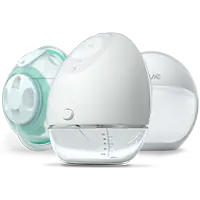
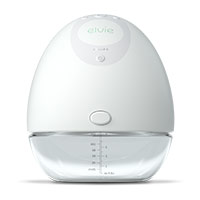

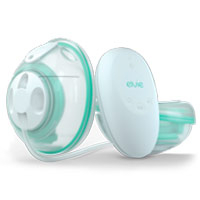
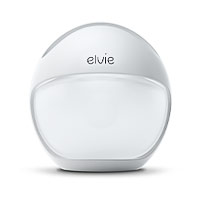
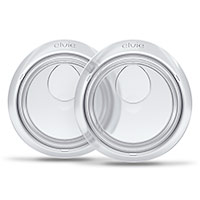
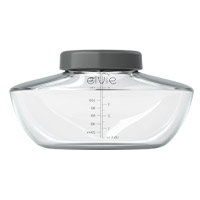
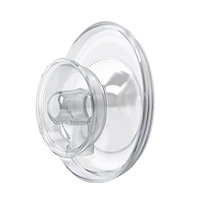

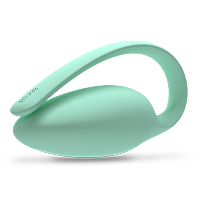
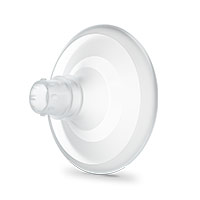
 7 minute read
7 minute read